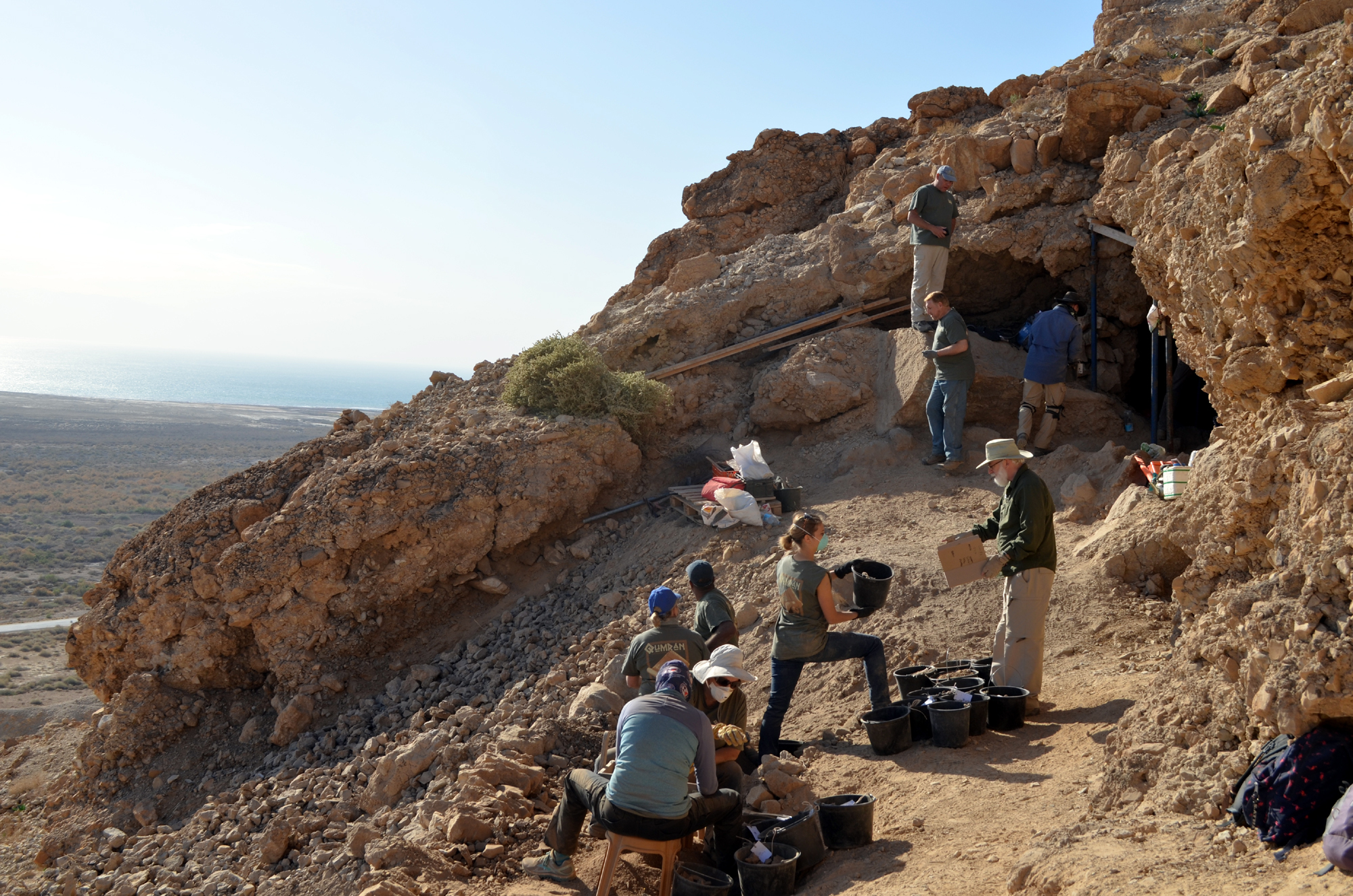
[SLIDESHOW=44323,44324]JERUSALEM (BP) — A major discovery related to the Dead Sea Scrolls has been announced — a cave where some of the ancient scrolls once were placed.
Archaeologists previously had listed 11 caves where Dead Sea Scrolls texts had been found. Now there’s a 12th cave, according to an excavation led by Hebrew University in Jerusalem and Liberty University in Virginia — though the cave had been looted during the mid-20th century and its scrolls taken.
The Liberty University contingent was led by Randall Price, distinguished research professor at Liberty and curator of the Liberty Biblical Museum at the campus in Lynchburg.
Lamar Cooper, senior professor of Old Testament and archaeology at Criswell College in Dallas, was among the excavation participants. Cooper, who was on site from Dec. 28 through Jan. 13, helped catalog artifacts found in the cave.
Oren Gutfeld, a researcher at Hebrew University’s Institute of Archaeology, told The Washington Post after the Feb. 8 announcement, “It is the first time in 60 years we have the first evidence of a new scroll cave.”
Although no new scrolls were found, the cave abounded with other artifacts.
“Thank God they took only the scrolls,” Gutfeld told The Post. “They left behind all the evidence that the scrolls were there.”
Based on the contents of the cave in the Qumran region northwest of the Dead Sea, the excavation team determined that local Bedouins looted it for any scrolls and other antiquities. However, the team did discover broken jars and lids, fragments of scroll wrappings, a string that tied the scrolls, and a piece of worked leather that had been part of a scroll.
Cooper participated in his first excavation in Israel in 1969 and began working on Qumran excavations in 2006 at the invitation of Price at Liberty University.
“When I went through seminary, I listened to all of the things that were told me by scholars — some of whom didn’t hold Scripture in very high regard,” Cooper said. “When I got to Israel, all of [the discoveries] showed me that what is in the Bible is true, because what we were bringing out of the ground were things that relate to the Bible.”
In addition to the monumental step in Dead Sea scrolls research, Cooper noted its significance for a college like Criswell that was founded on the primacy and inerrancy of Scripture.
“Because we stand strong on the Bible — the authenticity of Scripture — it’s been a thrill for me to be associated with everybody who works here because we all believe that the Bible is the Word of God. … [E]very dig that I’ve gone to tells me more and more that everything that happened at that place is what the Bible says,” said Cooper, who has served as Criswell’s dean of graduate studies, vice president for academic affairs, executive vice president and provost and two separate tenures as interim president.
The Dead Sea Scrolls, according to Liberty University’s divinity school website, are “the greatest manuscript discovery of all time. They include the oldest copy of the biblical text and sectarian writings that inform us of religious life and practice in the time before and during the life of Jesus.”
“One significance of the Dead Sea scrolls is that they demonstrate how accurately the Bible was transmitted over time by the Jewish scribes (there is better than a 95% agreement between the Hebrew words of the Great Isaiah Scroll and the Hebrew Masoretic Text, from which our Old Testament was translated),” the divinity school description noted.
According to scholars, a Jewish sect known as the Essenes around the time of Jesus hid their scrolls in the desert caves in cliffs along the Dead Sea near Qumran in the West Bank. The first of the caves was entered in the late 1940s by Bedouin goat-herders.













